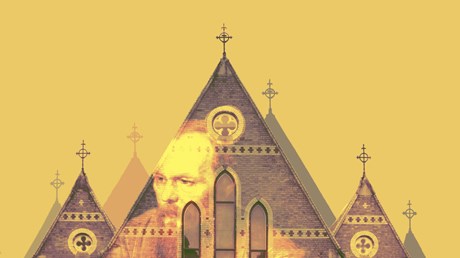How the dilemmas driving "The Brothers Karamazov" resemble those confronting the world’s third-largest Christian communion.

C. S. Lewis envisioned Christianity as a house with “a hall out of which doors open into several rooms.” The rooms are ecclesial traditions that offer disciples a fire for warmth, a chair for rest, and a meal for nourishment and fellowship, whereas the hall is “mere” Christianity, a place where disciples greet and gift each other with riches from their respective rooms.
Against tradition without tradition (nondenominationalism), Lewis encouraged Christians to find themselves in a room because “the hall is a place to wait in, a place from which to try the various doors, not a place to live in.” He adds, “I am sure God keeps no one waiting unless He sees that it is good for him to wait. When you do get into your room you will find that the long wait has done you some kind of good which you would not have had otherwise.”
Lewis’s analogy has organized the shape of my Christ-life with remarkable clarity. My childhood and adolescence were spent in the hall, oblivious that it was a hall and unsuitable for the long haul. Only when I studied abroad and worshiped in the Church of England did I find a room—or it found me, satisfying questions that Lewis advises in our search: “Are these doctrines true: Is holiness here? Does my conscience move me towards this?”
The journey I made from generic evangelical to Anglican fits a recent pattern narrated by American theologian Robert Webber in his 1985 book, Evangelicals on the Canterbury Trail. The Anglican room welcomed Webber and other evangelicals, including myself, with six areas of orthodoxy that were “not adequately fulfilled” in our Christian experience: mystery and awe, liturgical worship, sacramental ...
from Christianity Today Magazine
via


.gif)

.gif)
.gif)
